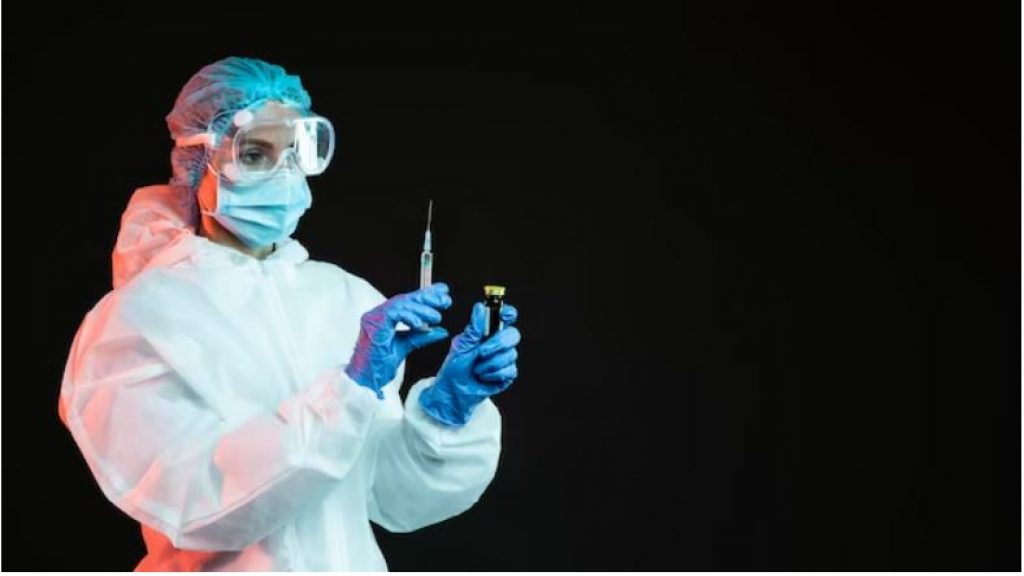
What Is A Forensic Nurse?
Discover the exciting world of forensic nursing. Learn what it takes to become a forensic nurse and their job. Our informative guide provides a comprehensive overview of this fascinating field. Perfect for anyone looking to pursue a career in healthcare or criminal justice. Get ready to dive into the world of forensic nursing!
What is a Forensic Nurse?
A forensic nurse is a registered nurse who uses the principles of law, medicine, and science to provide comprehensive treatment for the whole person, body, mind, and spirit. A forensic patient is someone whose medical condition has led them into legal trouble.
A forensic nurse is a specialist who cares for victims of violence and can also do a medical forensic examination, including an evaluation for evidence collection, give compelling testimony in court, and exhibit empathy for those who have experienced trauma due to the incident.
A forensic nurse’s priority is always the patient’s health during an evaluation. The healthcare and legal sectors rely heavily on the expertise of forensic nurses. Nurses use this approach in hospitals, anti-violence programs, psychiatric institutions, medical examiners’ offices, communities, and prisons.
An anti-violence response to acts of human violence is developed by forensic nurses in collaboration with law enforcement, social workers, medical experts, and public health groups. The public also benefits from having forensic nurses. Increased prosecution based on accurate evidence collection has been shown to contribute to a healthier society.
When survivors seek forensic nursing services, they are told that domestic violence affects more than just the victims. Sexual Assault Nurse Examiner (SANE) is a common entry-level position for forensic nurses. To become a SANE, nurses must complete a 40-hour didactic training course covering symptomology, documentation, history-taking skills, evidence collection, courtroom testimony, and forensic photography about sexual assault survivors.
Forensic nurses frequently labor outside of normal business hours to care for community people injured due to criminal activity. This includes nights, holidays, and weekends.
What are the Specialty Areas of Forensic Nurses?
Depending on their interests and qualifications, forensic nurses may focus on caring for children, women, the elderly, families, or persons experiencing mental health issues. With an online Master of Science in Nursing from Regis, aspiring forensic nurses can focus on one of several areas relevant to the field.

Psychiatric Mental Health Nurse Practitioner (PMHNP):
By specializing in this area, nurses get the skills to treat patients’ mental health problems and physical wounds.
Pediatric Nurse Practitioner (PNP):
Whether it’s a physical injury or a child with unique needs, nurses specializing in pediatrics are better equipped to identify and address the problem.
Family Nurse Practitioner (FNP):
As a result of completing this track, nurses will be better equipped to provide comprehensive care to a wide range of patients, from the very young to the very old.
Women’s Health Nurse Practitioner (WHNP):
This concentration helps nurses better meet the healthcare needs of women at every stage of their lives. Nurses learn to think critically about the unique challenges faced by female patients.
Adult-Geriatric Nurse Practitioner (AGNP):
Elderly patients, who are often frail after years of sickness, are the primary emphasis of this subfield.
What Does a Forensic Nurse Do?
In hospitals and other therapeutic settings, forensic nurses perform their duties. They examine patients physically, take their vitals, and document and photograph any signs of assault or other bodily trauma. They frequently testify in courtrooms regarding their results.
As a result, forensic nurses work closely with attorneys and are conversant with the legal system. Additionally, forensic nurses help guide their patients through the rest of the healing process by linking them to community resources and social services.
An emotional toll may be taken on nurses who work in forensic nursing. If you’re a nurse interested in a forensic nursing job, you must show you can handle difficult cases, such as rape and abuse. Like nurses in other specialties, a forensic nurse must be empathetic and knowledgeable about death to assist the loved ones of deceased patients.
What makes a forensic nurse qualified?
Anyone training to be a forensic nurse must be sympathetic, robust, and emotionally stable, as working with trauma victims may be taxing. For forensic nurses to be eligible in this sector, they must possess other attributes. Possessing the capacity to work and coordinate in a fast-paced atmosphere, solid communication skills, an eye for detail, and the ability to evaluate and analyze information to reach a sound conclusion critically, are all essential.
To get started in forensic nursing, the IAFN suggests doing a post-graduate certificate program to become a certified specialist in forensic nursing (SANE). To meet the requirements, individuals must complete either a SANE-A or SANE-P training program that includes at least 40 hours of theoretical coursework and 40 hours of clinical training. The Commission for Forensic Nursing Certification will only accept nurses who have completed SANE courses certified by the IAFN.
If you are interested in pursuing a career as a forensic nurse investigator may obtain a Master of Science in Forensic Nursing from accredited universities. This is typically necessary to become a legal nurse consultant, death investigator, or nurse coroner. Short courses and doctoral programs are also available in forensic nursing; examples include death investigators and nurse examiners specializing in domestic abuse.
The demand for forensic nurses varies greatly from one nation or US state to the next. Prospective nurses should research the specifics of the application they plan to submit before doing so.
How much do Forensic Nurses make?
According to the data collected by BLS, the average salary of a forensic nurse varies from state to state in the United States. Below is a list of the average salaries of forensic nurses in each state:
It should be noted that these salary amounts are based on several factors, including education level, years of experience, and specialty area.
What Is the Career Outlook for Forensic Nurses?
The population of adults aged 65 and up has exploded in recent years, increasing from 41 million in 2011 to 71 million in 2019 (a growth rate of 73%). Through 2031, the BLS projects a 6 percent increase in the need for nurses, which is on par with the national average for job growth. Additionally, a nursing shortage is expected to worsen due to the advancing age of nurses reaching retirement and baby boomers’ rising health demands.
The demand for nurses is rising, and violent crime is always a problem in this country. Crime rates in the United States may go up and down, yet thousands of Americans are victims of violent crime yearly.
FAQ’s
What is a forensic nurse?
A forensic nurse is a registered nurse who has specialized training and expertise in forensic science and the legal system.
What does a forensic nurse do?
Forensic nurses provide medical care and support to patients who have experienced violence, abuse, or trauma. They collect and preserve evidence, testify in court, and work with law enforcement agencies.
What kind of training do forensic nurses receive?
Forensic nurses typically have a nursing degree and receive additional training in forensic science and legal procedures. They may also pursue certification in forensic nursing.
What types of cases do forensic nurses work on?
Forensic nurses work with patients who have experienced a range of trauma, including sexual assault, domestic violence, child abuse, and elder abuse. They may also work on cases involving death investigations and mass disasters.
What skills does a forensic nurse need?
Forensic nurses need strong clinical skills and the ability to collect and preserve evidence, communicate effectively with patients and law enforcement, and provide compassionate care to patients who have experienced trauma.
How can I become a forensic nurse?
To become a forensic nurse, you must earn a nursing degree and pursue additional training in forensic science and legal procedures. You may also need to obtain certification in forensic nursing.
Where do forensic nurses work?
Forensic nurses may work in hospitals, clinics, law enforcement agencies, or forensic laboratories. They may also work in private practice or as consultants.







